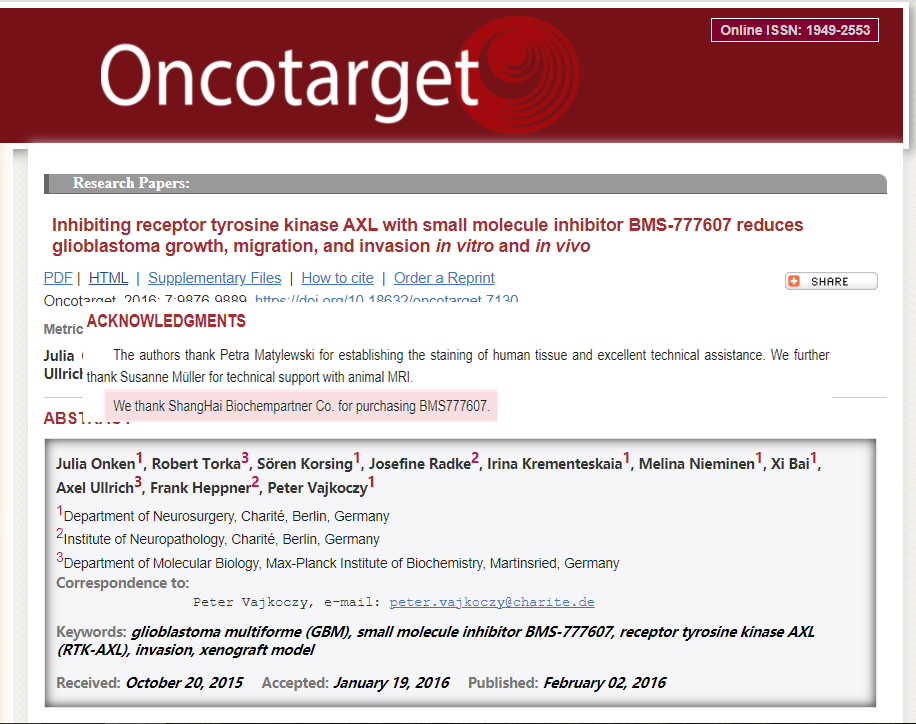Inhibiting receptor tyrosine kinase AXL with small molecule inhibitor BMS-777607 reduces glioblastoma growth, migration, and invasion in vitro and in vivo

ABSTRACT Purpose: Receptor tyrosine kinase AXL (RTK-AXL) is regarded as suitable target in glioma therapy. Here we evaluate the anti-tumoral effect of small molecule inhibitor BMS-777607 targeting RTK-AXL in a preclinical glioma model and provide evidence that RTK-AXL is expressed and phosphorylated in primary and recurrent glioblastoma multiforme (GBM). Experimental design: We studied the impact of BMS-777607 targeting RTK-AXL in GBM models in vitro and in vivo utilizing glioma cells SF126 and U118MG. Impact on proliferation, apoptosis and angiogenesis was investigated by immunohistochemistry (IHC) and functional assays in vitro and in vivo. Tumor growth was assessed with MRI. Human GBM tissue was analyzed in terms of RTK-AXL phosphorylation by immunoprecipitation and immunohistochemistry. Results: BMS-777607 displayed various anti-cancer effects dependent on increased apoptosis, decreased proliferation and migration in vitro and ex vivo in SF126 and U118 GBM cells. In vivo we observed a 56% tumor volume reduction in SF126 xenografts and remission in U118MG xenografts of more than 91%. The tube formation assay confirmed the anti-angiogenic effect of BMS-777607, which became also apparent in tumor xenografts. IHC of human GBM tissue localized phosphorylated RTK-AXL in hypercellular tumor regions, the migratory front of tumor cells in pseudo-palisades, and in vascular proliferates within the tumor. We further proved RTK-AXL phosphorylation in primary and recurrent disease state. Conclusion: Collectively, these data strongly suggest that targeting RTK-AXL with BMS-777607 could represent a novel and potent regimen for the treatment of primary and recurrent GBM.




